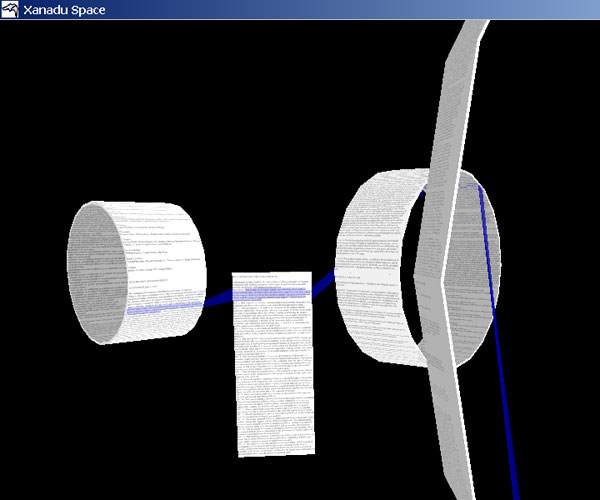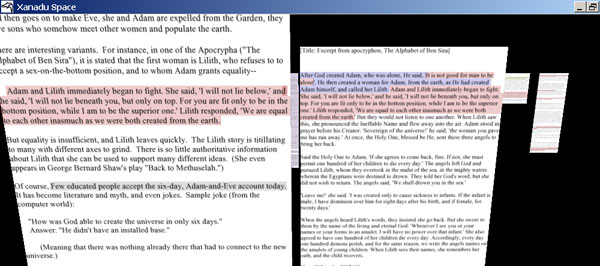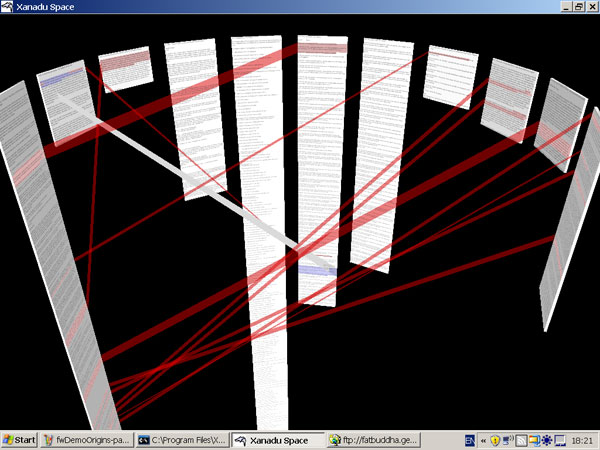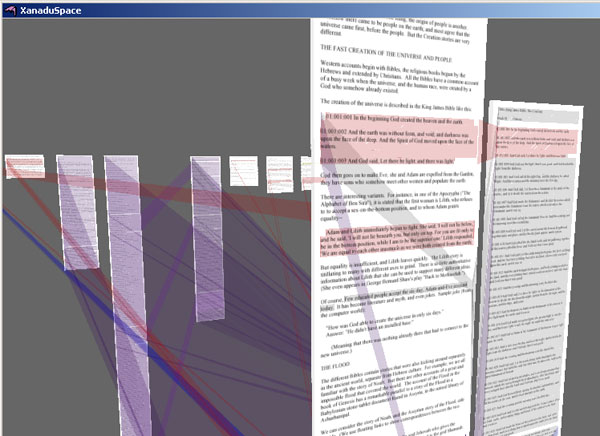It’s been a while since we’ve mentioned Ted Nelson on this blog. Ted Nelson came up with the idea of hypertext in 1963; since then, in his estimation, most of what’s happened in computer interfaces and the way we use electronic documents has been a colossal disappointment. This would be a presumptuous idea to have, but Nelson does have some claim to being a genius, and his analyses of what’s wrong with the way we use computers are cogent and worth taking seriously. If you have an hour, there’s a worthwhile video of him presenting the basics of his ideas at Google at GoogleVideo. There’s an even better (if longer) presentation of a talk he gave at Oxford in 2005, where he holds forth on the history of science and technology, why the systems that win out aren’t necessarily the best ones, and what’s wrong with the standard metaphors of cut, copy, and paste as used on computers since 1984. Nelson’s a computer scientist, but he’s talking about issues that increasingly affect everyone in today’s world. Viewing both – especially in the first, where his audience is an unenthusiastic group of Google engineers – it’s hard not to feel some sympathy for him as a romantic figure. His view of technology bears a certain similarity with the view of American history laid out in Thomas Pynchon’s Mason & Dixon: that of vast potential squandered in the name of power and the market.
As I’ve argued before, Ted Nelson’s ideas are essential to engage with if we’re thinking seriously about how we compose and read using computers. His central thesis (which is strangely echoed by Gary Frost‘s comments on this blog) is that from Xerox PARC on, electronic documents have been designed to mimic their paper antecedents. In Nelson’s view, this is where everything went wrong: electronic documents could and should behave entirely differently from paper ones. Since 1960, Nelson’s been attempting to remedy this problem by creating a replacement for the World Wide Web which he calls Project Xanadu. In 1995, Wired termed it the “longest-running vaporware story in the history of the computer industry”. Twelve years later, Project Xanadu isn’t much closer to replacing the web, but it’s somewhat less vaporware: Nelson’s group has released Xanadu Space, Windows-only software that lets you create primitive transcluded documents. We unfortunately don’t have a PC in the office to try it out on, but you can see Nelson running it in the Google video, and there are intriguing screenshots:
There’s more information here; I’d be curious to hear how well it actually works.




